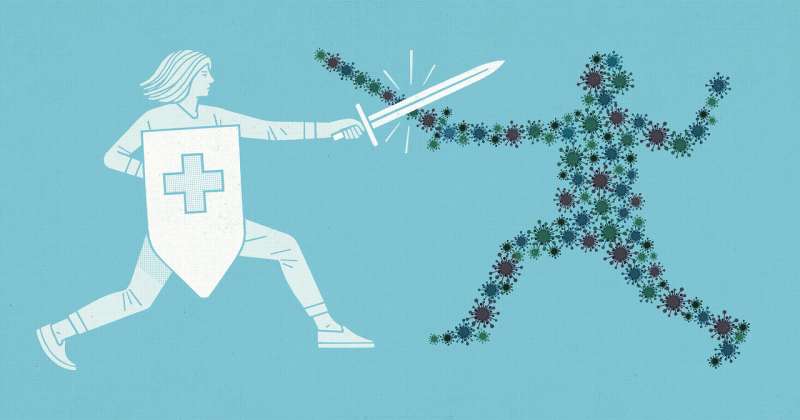Balancing flu risks and deaths while everyone's talking about coronavirus

An additional 2,000 Americans—10 of them children—have died from the flu since the last reporting period, according to the weekly flu report from the Centers for Disease Control and Prevention.
The surveillance report for the week ending Feb. 1 shows flu activity increased in many reporting areas. In addition, the report shows 22 million Americans have suffered from the flu, and that 12,000 adults and 78 children have died during this flu season, which began in October.
While coronavirus has dominated much of the conversation, that vigilance should be balanced with the understanding that influenza is more prevalent and much more likely to impact Americans, says Libby Richards, an associate professor of nursing in Purdue's School of Nursing.
Thirteen people have been diagnosed in the U.S. with coronavirus and the CDC has identified 318 negative and 68 pending cases, as of Feb. 11. Travel bans have been in effect, with the federal government coordinating evacuation of Americans from China. Once stateside, the evacuees are quarantined for at least 14 days and must show no signs or symptoms of illness before release.
"It's important to keep in mind that while we currently do not have a vaccine for coronavirus, we do have a safe and effective vaccine for the flu, and it's not too late to get one," Richards says. "We are still in the peak of flu season, so vaccination is important to protect you and those around you. The flu vaccine helps protect not only you from influenza but can also lessen your chance of flu-related complications."
In terms of prevention, proper and frequent handwashing is one of the easiest ways to prevent the spread of germs. Soap and warm water is best, but if that's not an option, hand sanitizer can be used.
"If an individual of any age only has a cough or a sneeze, they should use proper hygiene by covering their mouth and nose with a tissue when doing so. Then, they should properly dispose of the tissue immediately and wash their hands or use hand sanitizer," Richards says.
If an adult or child has flu-like symptoms, including fever, chills, cough, headache and fatigue, they need to stay home, get rest, stay hydrated and consider over the counter medications to help with aches and fevers, she says. Caregivers need to remember to not share items and frequently disinfect hard surfaces and items such as remote controls, electronic devices and door handles.
Adults and children need to be fever-free for 24 hours without the assistance of over-the-counter or prescription medications before they can return to work or school.


















